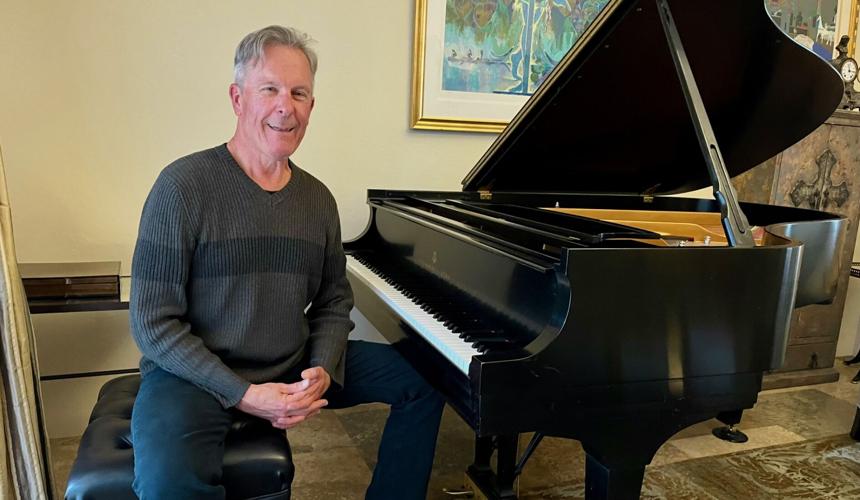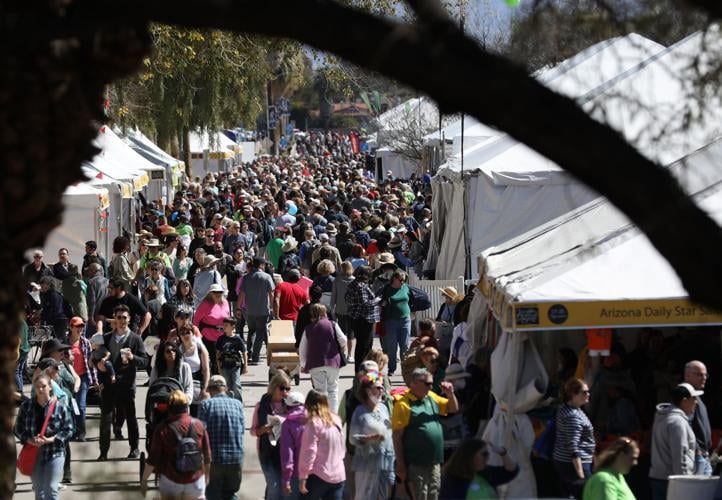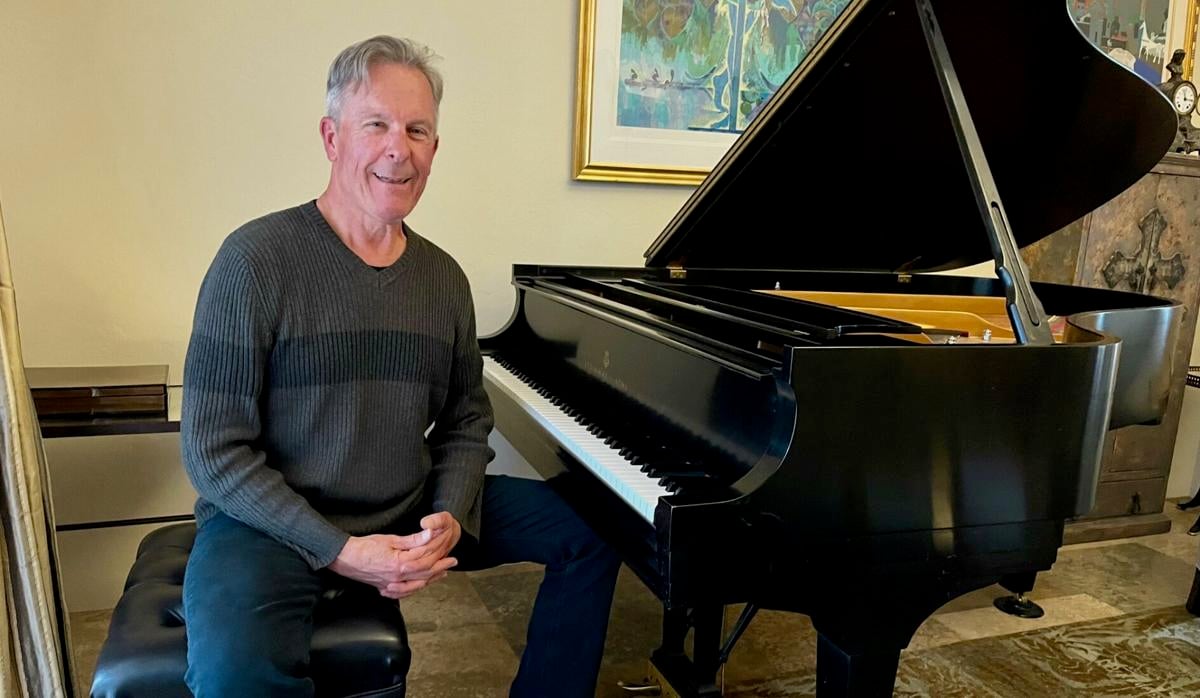Even now it would make a good opening scene for a movie, the camera finding a thin teenage boy standing on the side of a road … thumb out … gazing hopefully toward oncoming traffic.
Waiting, waiting, until a black limousine rolls to a stop in front of him and …
“Leonard Bernstein offers me a ride,” Welz Kauffman recalls. “I didn’t even know who he was, but I was about to find out. That’s the kind of summer it was for me. It changed my entire life.”
The year was 1976, and the limo was headed to Tanglewood, the summertime home of the Boston Symphony Orchestra and the Boston Pops. And that remarkable chance encounter helped launch a career in the arts for Kauffman, a 15-year-old boy who was 3,000 miles from home.
He would help manage major orchestras in Atlanta, Los Angeles and New York. From 2000 to 2020, he was president and CEO of the Ravinia Festival, the largest summer concert series in the United States.
And this Tuesday, Jan. 16, he will become the executive director of the Tucson Festival of Books.
Kauffman succeeds Melanie Morgan, who resigned in September, and he plans to hit the ground learning.
“I could write a book with everything I don’t know about the Tucson Festival of Books,” he confessed last week. “I’ve been to the festival the last couple of years. I’ve seen it through the eyes of a volunteer, but I have no idea how it all comes together. I can’t wait to see how everything works.”
Finishing touches are now being applied to the 15th TFOB, which will be March 9-10 at the University of Arizona.
By early summer, the reins will be in the hands of Kauffman, and it will be interesting to see how the event might evolve under his leadership.
This is an important time for America’s second-largest book festival. Like many major events, the festival is still feeling the effects of the pandemic.

Thousands of people made their way through the University of Arizona Mall for the Tucson Festival of Books on March 4, 2023.
A whole new world
Enter Welz Kauffman, a concert-level classical pianist who has been invited to write a new score.
The man’s resume reads like a bucket list for lovers of classical music, but if your mind’s eye sees a fully-coiffed patrician in a crisp black tuxedo, try again.
That same resume reveals that Kauffman was the rehearsal pianist for the Oakland Raiderettes … at age 11.
“I didn’t go to the games,” Kauffman laughed. “I’m not sure my parents could have dealt with that. I’m not even sure it would have been legal, but I would take BART to Oakland and help with rehearsals. They were great to me.”
He commuted from Alamo, which is 20 miles east of Oakland, living in a house with an older brother, an older sister and a piano in the living room. He still isn’t sure why those black and white keys called to him.
“My parents didn’t play,” Kauffman said. “My brother and sister played for awhile, but quit. For some reason, I sort of took to it.”
One-upping his siblings at the piano was part of that, but even better?
“By the time I was 8 or 9, I was making money with it,” Kauffman said. “I played for my church. For the Raiderettes. For local theater companies; I was way cheaper than union musicians. When you’re a kid, having money in your pocket is a pretty great thing.”
Soon, he was part of a garage band playing at high school dances, and he applied for a summer internship at the Tanglewood Music Institute, a program offered through Boston University.
The acceptance letter was a key that unlocked the rest of the boy’s life.
In addition to Bernstein, Kauffman met such Tanglewood artists such as James Taylor, Carly Simon and Dan Fogelberg that summer. A number of his classmates leaned toward them. Kauffman was drawn to the classical musicians there. To Bernstein. To Aaron Copeland.
“I’d never been around people who so totally loved music,” he said. “I’d go to rehearsals every day and concerts every night. Tanglewood made me realize there was a world of music out there that I hadn’t known about. There were people who only did classical music. It could be a profession. That was the turning point for me.”
That road through Tanglewood eventually took Kauffman to Occidental College in Los Angeles; the arts festival that was part of the 1984 LA Olympics; the Los Angeles and New York Philharmonic Orchestras; and, in 2000, to Ravinia – a 36-acre park and performance center in Highland Park, Illinois.
“Until they called and asked me to interview, all I knew was that it was an important place in the Midwest somewhere,” Kauffman said. “Once I saw it, Ravinia just felt right for me. I had worked at Hollywood Bowl when I was with the LA Phil. I spent a summer with the Pops in Boston. Ravinia is the summer home of the Chicago Symphony, so it felt familiar … even though I’d never seen a performance there.”
Interestingly, his first season ended on 9/11. His last season, in 2020, was canceled due to the pandemic.
In those years in between, Ravinia enjoyed unprecedented success. Kauffman became the longest-serving president in the organization’s 100-year history. He changed the face of the place, infusing the calendar with pop stars ranging from Tony Bennett to Lady Gaga to Sting to 50 Cent. Audiences commonly exceeded 10,000 people, attendance soared past 600,000 a year, and annual revenue grew from $16.1 million in 1999 to $42.7 million in 2020.
Fundraising exploded, too. Kauffman helped raise $67 million for improvements to the Ravinia campus.
In 2018, the Chicago Tribune named Kauffman its Chicagoan of the Year for Classical Music. Interestingly, he was honored for Ravinia’s summer-long tribute to Bernstein, a series of performances by the Chicago Symphony.
In August 2019, Kauffman announced he would resign after the 2020 season … which was canceled due to the pandemic, and is now remembered as the “Silent Summer” in Highland Park.
“It was just time,” Kauffman said. “I had never worked anywhere for longer than five years. After 20, I started to wonder if I should do something else, and then COVID hit.”
A new start
He and his husband, John, moved to Tucson, where John had a house near the Catalina Foothills. “John’s parents had owned it,” Kauffman said. “His sister raised her kids here, so it kinda felt like home.”
The move was encouraged by George Hanson, former conductor of the Tucson Symphony. “I had worked with him in Atlanta,” Kauffman said. “He loved his time here.”
For the last two years, Kauffman served as managing director of Tucson’s True Concord Voices and Orchestra.
In October, he learned there was an opening at the Tucson Festival of Books.
“I saw something that said if you’re interested, send us a letter. Well, I was. There’s something special about being there. To see so many kids and families. To see so much diversity. One of the things I liked about Ravinia was that it felt like family, and I got that sense at the book festival, too. I can’t wait to get started.”
The 2023 Tucson Festival of Books brought hundreds of authors and large crowds to the University of Arizona Mall March 4-5. Here are some highlights from the festival. Video by Aidan Wohl / Arizona Daily Star






